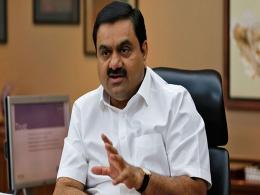While Europe's sovereign debt crisis is weighing on private equity firms' ability to make deals, the downturn in the global economy and financial markets has not dented investors’ appetite for private equity in Asia, according to Coller Capital's latest Global Private Equity Barometer, an LP sentiment survey conducted by the private equity firm that specialises in second hand LP interests.
Coller Capital polled 107 private equity fund investors, 40 per cent of whom were located in North America, 40 per cent in Europe and 20 per cent in the Asia-Pacific region. In terms of assets under management, respondents ranged from under $500 million (16 per cent) to $50 billion-plus (18 per cent). The majority of respondents (30 per cent) were bank/asset managers, followed by public pension funds (13 per cent) and endowments/foundations (13 per cent).
According to the findings of the survey, about three-quarters of the Asia-Pacific LPs expect to maintain or increase their target allocation to the asset class in the next year. What’s more, 85 per cent of the Asia-Pacific LPs believe that PE investment results in healthier businesses.
"This indicates their (Asia-Pacific LPs) belief in the sustainability of the PE model, says Hiro Mizuno, Partner, Coller Capital. However, fundraising is going to be challenging. About 93 per cent of the world’s private equity investors expect to reject some ‘re-up’ requests from their General Partners (GPs) in the next 18 months, the survey has shown. "Investors will be more demanding and more selective. However, fund managers with strong fund performance and stable teams will still be able to raise funds successfully," he adds.
The survey suggests that Asia-Pacific investors are, indeed, slightly less bullish about medium-term PE returns than North American LPs (although more upbeat than their European peers). There are probably two reasons for this. The make-up of PE portfolios varies by geography and will be different across the two regions, and North American investors have, by and large, been investing in PE for longer and therefore, have more direct experience of industry market cycles. However, it is important to keep these results in context. One-third of the Asia-Pacific LPs expect to achieve net annual returns of 16 per cent-plus across their PE portfolios over the next 3-5 years. This is, indeed, a strong result. As many as 60 India-based private equity firms are out on road to raise money for their first or follow-up funds, expecting to mop up over $13 billion, according to VCCedge, the financial research platform of VCCircle.
Globally speaking, the findings portray the latest evidence that buyout firms face an increasingly difficult fundraising landscape. The study showed that one in five investors plans to lower his exposure to European private equity as a result of the continent's debt crisis. Of course, the problems across the continent are leading European investors to take a gloomier view of the potential returns from private equity than their peers in the USA and Asia.
Also, fundraising cycles have already lengthened and one should not expect those to shorten in the near future. GPs already hold large volumes of LP money that they have not yet managed to invest. "The Barometer shows that the vast majority (87 per cent) of LPs have had requests to extend investment periods from their GPs, and over three quarters of investors expect to receive more such requests," Mizuno adds.
During the third quarter of 2011, 97 private equity funds reached a final close, raising $44.8 billion in aggregate, down from $82.8 billion raised by 175 funds which closed in the second quarter of 2011, according to Preqin, a UK-based independent research firm providing data on private equities, hedge funds and other alternative investment vehicles.






